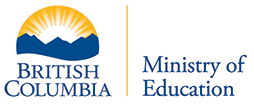
Unit Plan: Integers
Math / Grade 7
Big Ideas
Computational fluency and flexibility with numbers extend to operations with integers and decimals.
Concepts:
- Quantity
- Change
- Balance
Essential Questions
Students will keep considering…
- What is balance?
- How do you achieve balance?
- How does change affect balance?
- How does change affect quantity?
Monitoring Progress
Teacher will monitor progress:
Teachers can monitor progress through ongoing formative assessment including but not limited to:
- Check ins
- Teacher observation
- Homework
- Quizzes
Evaluative Criteria
N/A
Resources
N/A
Reflection
How will teachers and their students reflect on and evaluate the completed project?
Teacher Reflection
- What aspects of the unit went well?
- What did students struggle with?
- What did you struggle with?
- What would you add/revise the next time you taught this unit?
- Were there any unintended outcomes?
- Were students engaged?
Downloads
Stage 1 – Desired Results
Big Ideas
- Computational fluency and flexibility with numbers extend to operations with integers and decimals.
Concepts:
- Quantity
- Change
- Balance
Transfer Goals
Students will be able to independently use their learning to…
- To see examples of balance in terms of negatives and positives in other contexts and areas of their lives.
Meaning
Students will understand that…
- The relationship between positive and negative integers represents a balance (zero pairs)
- Quantities can be both positive and negative
- Integer operations describe a change between two or more items
- Integers have real life applications
Students will keep considering…
- What is balance?
- How do you achieve balance?
- How does change affect balance?
- How does change affect quantity?
Acquisition
Students will be skilled at…
- Use reasoning and logic to explore, analyze and apply mathematical ideas
- Demonstrate and apply mental math strategies
- Model mathematics in contextualized experiences
- Apply multiple strategies to solve problems in both abstract and contextualized situations
- Develop, demonstrate and apply mathematical understanding through play, inquiry, and problem solving
- Visualize to explore mathematical concepts
- Explain and justify mathematical ideas and decisions
- Communicate mathematical thinking in many ways
- Represent mathematical ideas in concrete, pictorial and symbolic forms
- Connect mathematical concepts to each other and to other areas of personal interests
CORE COMPETENCIES
Communication:
- Connect and engage with others (to share and develop ideas)
- Explain/recount and reflect on experiences and accomplishments
Thinking:
- Analyze and critique
- Question and investigate
- Generating ideas
- Developing ideas
Personal Awareness and Responsibility:
- Self-determination
- Self-Regulation
Social Responsibility:
- Contributing to community and caring for the environment
- Building relationships
- Solving problems in peaceful ways
- Valuing diversity

The following resources are made available through the British Columbia Ministry of Education. For more information, please visit BC’s New Curriculum.
Big Ideas
The Big Ideas consist of generalizations and principles and the key concepts important in an area of learning. The Big Ideas represent what students will understand at the completion of the curriculum for their grade. They are intended to endure beyond a single grade and contribute to future understanding.
Core Competencies
 Communications Competency
Communications Competency
The set of abilities that students use to impart and exchange information, experiences and ideas, to explore the world around them, and to understand and effectively engage in the use of digital media
 Thinking Competency
Thinking Competency
The knowledge, skills and processes we associate with intellectual development
 Social Competency
Social Competency
The set of abilities that relate to students’ identity in the world, both as individuals and as members of their community and society
Curricular Competencies & Content
Curricular Competencies are the skills, strategies, and processes that students develop over time. They reflect the “Do” in the Know-Do-Understand model of curriculum. The Curricular Competencies are built on the thinking, communicating, and personal and social competencies relevant to disciplines that make up an area of learning.
Additional Resources
First People's Principles of Learning
To read more about First People’s Principles of Learning, please click here.
For classroom resources, please visit the First Nations Education Steering Committee.
